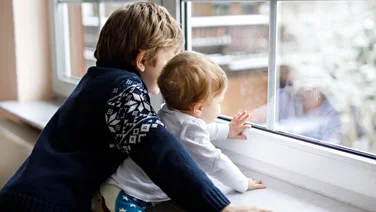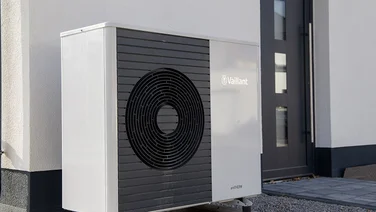We receive a small fee from trusted installers when you request a quote through our site. This helps us keep our content independent, well-researched and up to date – Learn more
- EPC band F homes could pay around £1,950 for dual fuel bills
- EPC band D, the UK’s most-common rating, could pay £204 more
- One in two homes are below the government’s target of EPC band C
People who live poorly insulated homes might have to pay as much as £550 more than they otherwise would, despite Ofgem’s Energy Price Cap reducing by 7% from July.
According to research from the Energy & Climate Intelligence Unit (ECIU), homes with an Energy Performance Certificate (EPC) rating of band F could see average annual dual fuel bills of around £1,950 when the Price Cap declines to £1,720 per year from 1 July.
This figure would be £555 more than a home with an EPC rating of band C and £352 more than one in band D, the UK’s most common EPC rating.
The data from the ECIU said this is split between higher gas bills of around £270, due to poor insulation and energy efficiency, and higher electricity bills of £280 from inefficient lighting and appliances.
According to the ECIU, the average home in the UK is rated EPC band D, which will see bills around £200 higher than EPC band C, split between £125 extra on gas and £75 extra on electricity.

What does this mean for homes?
Jess Ralston, energy analyst, ECIU, said the extra energy costs for inefficient homes would have been higher, except that energy demand since 2021 has been suppressed as households have cut back on energy use in response to higher prices.
Also according to the ECIU, the least energy efficient homes are in the private rented sector, with one in two homes (52%) falling below the government’s target of EPC band C, compared to less than a third (28%) of socially rented homes.
Government data also shows that private renters who receive housing benefits are more likely to live in the most expensive to heat buildings. Around 65% of private renters in receipt of housing support living in homes rated EPD band D or below, compared to 49% of those not in receipt of housing support.
Jess Ralston, head of energy, ECIU, said they are also more likely to live in a building with damp, as around 15% of private renters in receipt of housing support have a damp problem.
Ralston added that this is in comparison to fewer than one in 10 private renters who do not receive housing support (8%) and even fewer (6%) social renters that receive housing support.
In addition, 25% of those receiving housing support reported they could not keep their home warm, compared to 16% not receiving it.

Get free insulation quotes
Answer a few quick questions, and our trusted installers will send you bespoke insulation quotes – for free.
How is the industry helping?
The analysis was published on the same day that more than 50 senior figures from ‘socially-focused charities, green campaign groups and housing organisations’ have written to the Treasury.
The letter urged the Treasury to stick to its pledged insulation program, the Warm Homes Plan, in the Spending Review to ensure insulation is fitted in the homes of older and vulnerable people, and those on a low income.
Ralston said that widening eligibility of the Winter Fuel Payment could mean help for those struggling most this year, but “this is treating the symptoms rather than the root cause,” which is colder, damper homes having to burn more gas to stay warm.
“The poor state of the UK’s housing is a problem particularly for those earning the least who are even more at the mercy of volatile gas prices and the foreign actors, like Putin, who manipulate them,” she continued.
“Even with a slight fall in energy prices, the difference for a cold, damp home and an insulated, efficient one is hundreds of pounds. The government has already delayed higher standards for privately rented homes, but any further delays to the Warm Homes Plan insulation schemes could mean billpayers and taxpayers continue to be on the hook, subsidising the bills of K homes that are leaking heat.
“Chronic under-investment into insulating homes has contributed to the UK spending £140bn on gas over the crisis. This is the cost of ‘not zero’.”
In 2024, the new government further delayed new energy standards for rental properties by two years to 2030. This means more renters will be left paying higher energy bills. Ralston added that private renters are among the most poorly insulated.
Before the election, Ralston said, the government committed to insulating 19 million homes through its Warm Homes Plan. However, this has been dropped to 5 million, with concerns the policy will be further scaled back in the Comprehensive Spending Review.
“Cold, damp houses are responsible for making people ill, for example through respiratory and cardiovascular diseases, which adds to the pressures of the NHS, with the Buildings Research Establishment estimating this costs it £1.5bn a year,” she said.








